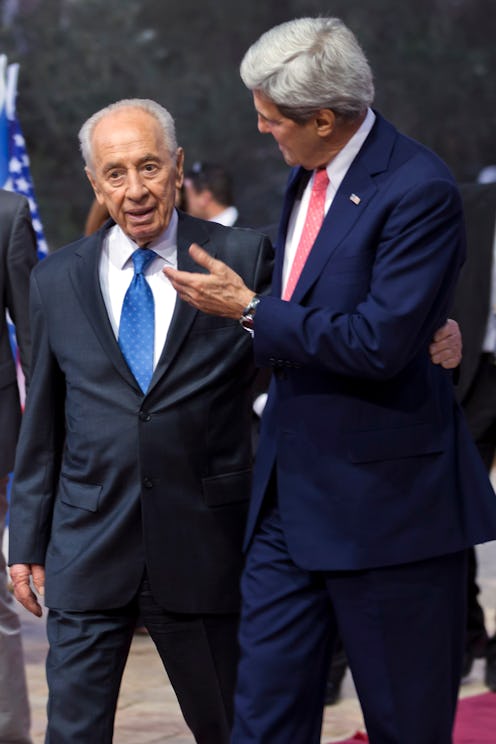News
In Iran Talks, Israel Keeps Kvetching
United States Secretary of State John Kerry arrived in Geneva Friday for discussions with Iran about its nuclear program, where he is joined by top diplomats from other world powers. France, Britain, and Germany all dispatched their foreign ministers to assist with the talks. Kerry had suggested, in an interview with an Israeli television station, that the talks would be focused on getting Iran to stop any expansion of its nuclear activities. In return, the United States and allies would loosen some of Iran's sanctions. A "first-step agreement that contains the first real limits on Iran's nuclear program in nearly a decade" might come as soon as Friday.
The negotiations — dubbed the P5+1 talks — are likely focusing on getting Iran to stop enriching uranium, and to reduce its existing supply of the substance. Iran has previously insisted that its uranium supply exists for peaceful purposes, such as nuclear energy, and not for the purpose of developing nuclear weapons. But these assurances have, understandably, been not enough for Israel and its western allies, who have insisted on tangible steps to reduce the likelihood of Iran gaining nuclear weapons. French foreign minister Laurent Fabius said that "nothing is hard and fast yet," but added that the diplomats are "working to reach an accord which completes the first step to respond to Iran’s nuclear program."
Meanwhile, Israeli prime minister Benjamin Netanyahu called the plan under discussion right now in Geneva "a historic mistake" after meeting with Kerry early on Friday. Israel and Iran have had a tense relationship, with both countries threatening each other with strikes periodically. But Israel has also been hesitant to accept what has appeared to be a softening in Tehran's rhetoric recently, including president Hassan Rouhani's acknowledgment that the Holocaust happened. "The Geneva proposals are weakening the pressure on Iran. Iran's concessions are non-concessions," Netanyahu said of the proposed nuclear agreement.
This, of course, is not good. Even if a deal is struck during the P5+1 talks, Israeli noncompliance can easily derail any sort of end to Iran's nuclear program. The mideast state has already said that it will not be bound by any international agreements because its top priority is its own national security. "I urge Secretary Kerry not to rush to sign, to wait, to reconsider, to get a good deal," he said.
Iran isn't the only topic on which Kerry is playing the role of Israel's peacemaker. The secretary of state has also been handling Israel's peace talks with Palestinians — another area in which the Israeli government has been blocking his attempts at an international agreement. After a deal appeared to be close last week when Israel released Palestinian prisoners, the government further heightened tensions by announcing the expansion of Israeli settlements in the West Bank.
"I will never compromise on Israel’s security and our vital interests, not in the face of any international pressure," Netanyahu said Friday. "I think the pressure has to be put where it belongs. That is, on the Palestinians who refuse to budge."
Perhaps the most unexpected part of this ordeal isn't that the west is considering lifting sanctions on Iran, or that Iran is potentially willing to halt its uranium production. The most unexpected part of all this might just be that John Kerry is still managing to keep his cool.
